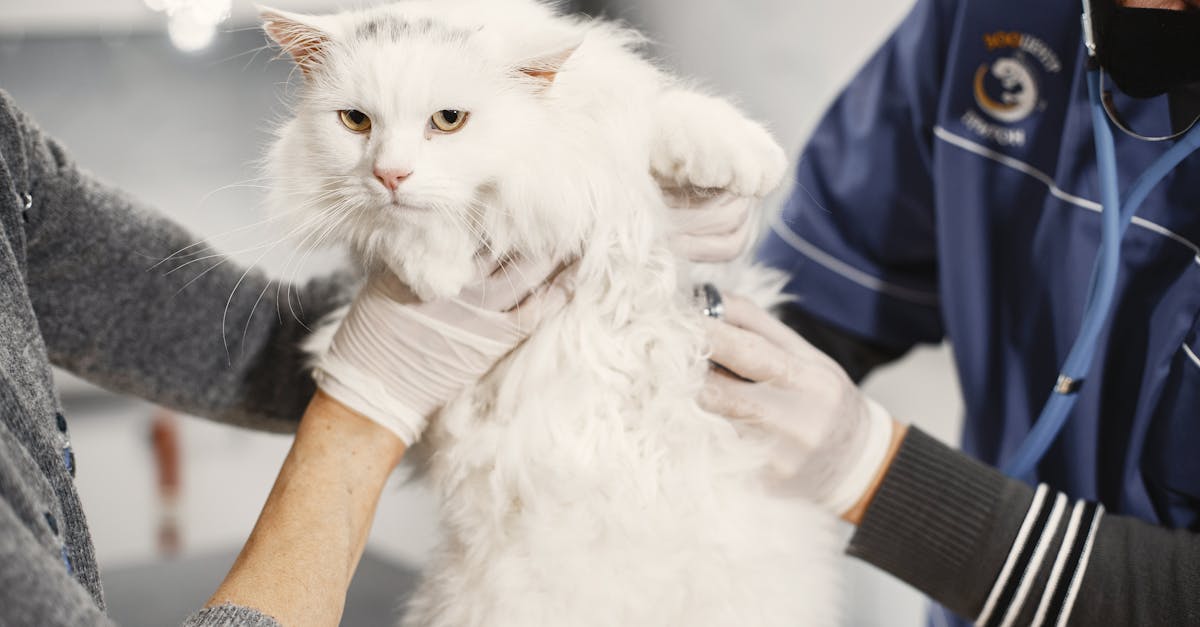Imagine coming home after a long day to a soft, purring cat curling up in your lap, instantly easing your stress. For many people, therapy cats provide this kind of emotional support and more. But what exactly is a therapy cat, and how can they help? If you're curious about these remarkable companions, you're in the right place.
🩺 Vet Recommendations
Therapy cats are specially trained or naturally suited to provide emotional comfort, reduce stress, and support mental health. While they aren’t the same as service animals, which perform specific tasks for individuals with disabilities, therapy cats play an essential role in improving well-being. Their calm demeanor and soothing presence make them ideal for people struggling with anxiety, depression, or other emotional challenges.
These cats are often used in settings like hospitals, nursing homes, schools, and even disaster response situations. They can also serve as emotional support animals (ESAs) for individuals in need of a comforting companion at home.
📋 Care Tips
If you're considering a therapy cat, it’s important to ensure they are well cared for and comfortable in their role. Here are some tips to keep in mind:
- Provide a safe and quiet environment where your cat can relax when not working.
- Ensure regular vet check-ups to keep them healthy and stress-free.
- Feed them a high-quality, balanced diet appropriate for their age and health.
- Engage in daily play sessions to keep them physically and mentally stimulated.
- Monitor their behavior to ensure they aren’t overwhelmed or stressed by their responsibilities.
Therapy cats thrive when their own emotional and physical needs are met. A happy, well-adjusted cat is more likely to provide effective support to others.
✅ Do’s and Don’ts
Here are some key do’s and don’ts to keep in mind when considering a therapy cat:
- Do research breeds or individual cats that have calm, friendly personalities.
- Do consult with a veterinarian about your cat’s health and suitability for therapy work.
- Do consider professional training if you plan to register your cat as a therapy animal.
- Don’t force your cat into situations they seem uncomfortable with.
- Don’t neglect their own emotional and physical well-being in favor of their role as a therapy cat.
Remember, not every cat is suited to be a therapy animal. It’s important to respect their individual personality and boundaries.
💡 Expert Advice
If you think a therapy cat might be right for you or your family, start by observing your current cat's temperament or exploring breeds known for their affectionate and calm nature, such as Ragdolls, Maine Coons, or British Shorthairs. Alternatively, you might consider adopting an adult cat with a known disposition that matches the qualities of a good therapy animal.
If you plan to register your cat as a therapy animal, organizations like Pet Partners or Therapy Animals of America can provide guidance on certification and training requirements. While certification isn’t legally required for emotional support animals, it can be helpful if your cat will visit public spaces or assist in clinical settings.
Ultimately, therapy cats are about building a mutually beneficial relationship. When cared for properly, they can bring immeasurable joy and comfort to their human companions while leading happy, fulfilling lives themselves.
FAQs
Q: What makes a good therapy cat?
A: A good therapy cat is calm, friendly, and sociable. They should be comfortable around strangers, tolerate being handled gently, and adapt well to new environments.
Q: Can any cat become a therapy cat?
A: While many cats can provide emotional support at home, not all are suited for formal therapy work. The best candidates are cats with naturally relaxed and affectionate temperaments.
Q: How do I register my cat as a therapy animal?
A: Registration typically involves working with an organization like Pet Partners, completing training, and passing a behavior evaluation. Requirements vary depending on the organization and intended use.
Book a $49 online vet consultation at https://www.dialavet.com for fast, expert advice.























